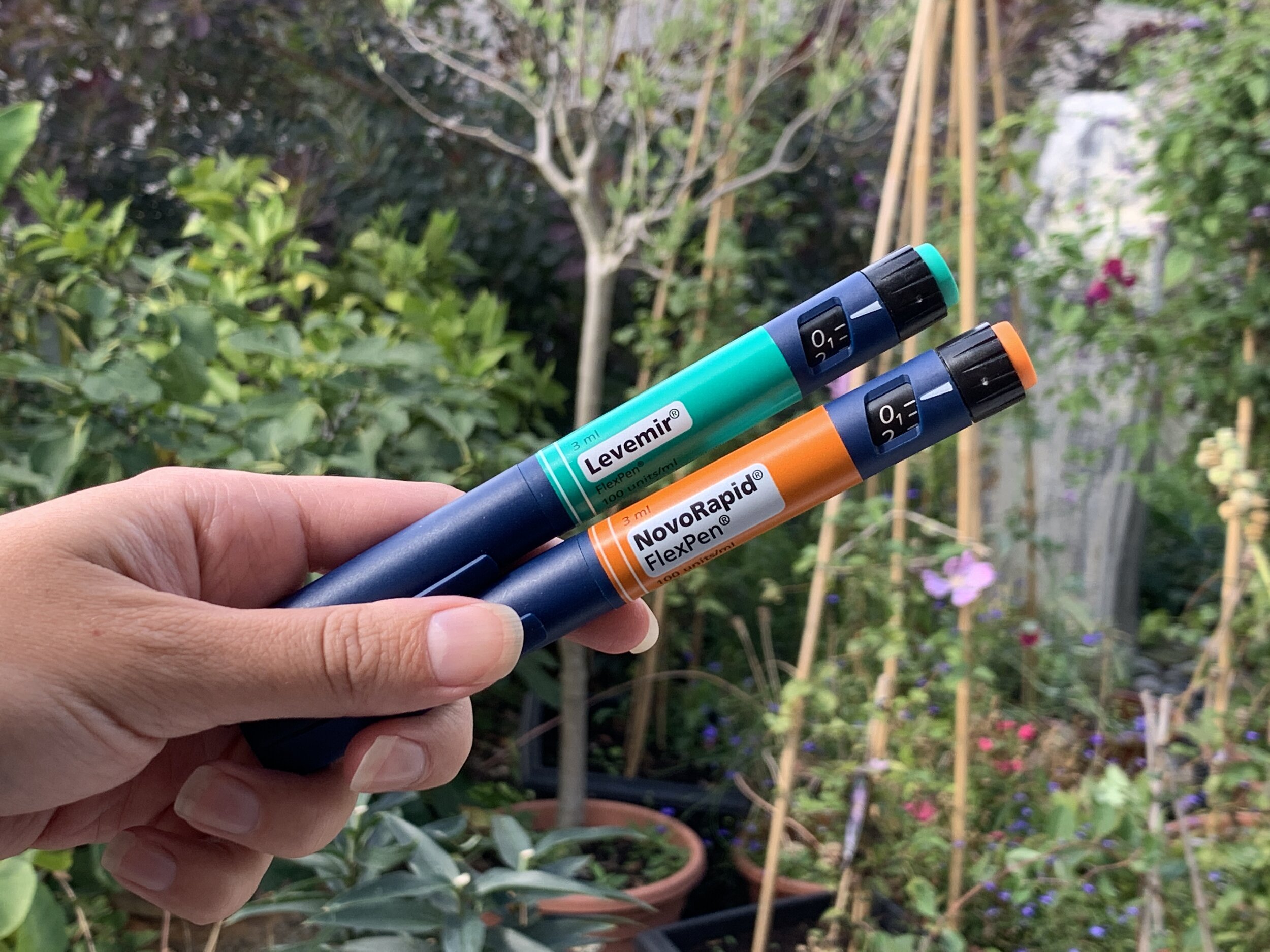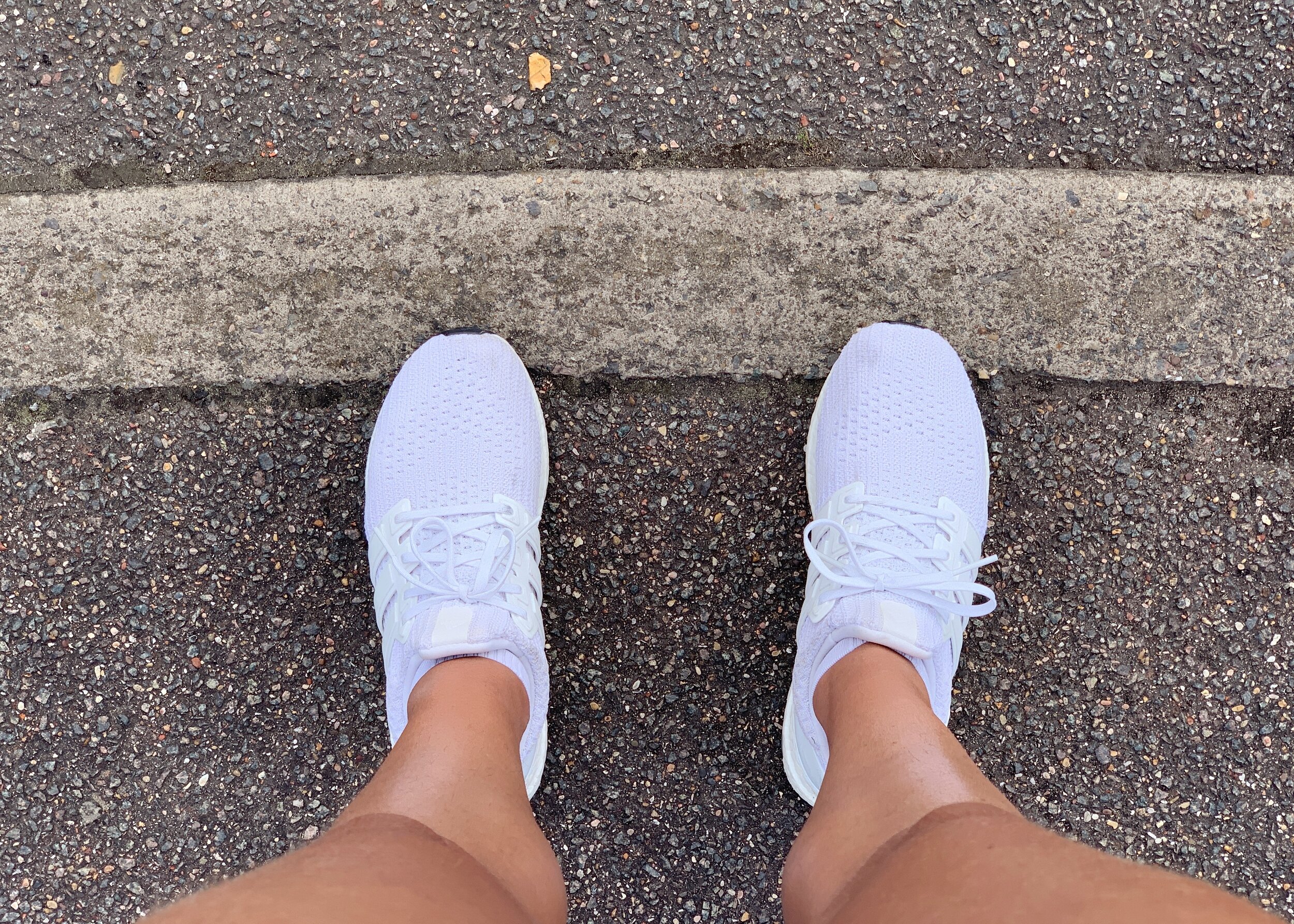
Health, fitness + wellbeing
Articles from Natalie’s blog (est. 2012) covering health from multiple perspectives, including:
holistic wellbeing (including mental, physical, emotional and spiritual wellness), biohacking, natural living, and life with a chronic condition (including personal experiences with cystic fibrosis and diabetes).
How I keep my digestive system happy with cystic fibrosis
If you have, or have heard of cystic fibrosis, you will likely know that digestive system management is pretty much a full time job. From calculating fats and carbs to digestive enzymes and insulin, as well as dealing with the CF symptoms that can occur.
Over the last few years I’ve learnt some tricks that help me to better manage my digestive health and keep my tummy happy.
I’m so happy that I’ve finally put this in a blog post - both for my own documentation, but also to give anyone that needs it some ideas of tweaks that you can experiment with.
I talk about: what I do and don’t eat, what I do and don’t drink, what kind of movement helps, hormonal considerations
Mindful Airway Clearance for Cystic Fibrosis
I used to really struggle with using airway clearance devices like flutter and acapella.
I found I got restless. I got bored. I got distracted.
I could go months or years without using certain types of airway clearance equipment, because I just didn’t get on with it. I used different methods that were less reliant on breathing into a device. While we don’t have the vest readily available in the UK, I can understand why people choose this passive airway clearance technique.
The thing is, I have come to realise, over years of doing different types of physical activity and different types of breathing exercise, that breath awareness and an active breath (versus passive) is far more effective.
I’m writing this because for the first time in years today, I decided to pick up my flutter and give it a go.
Why did I do this? And why did I find I was able to finally feel that I was able to do this effectively?
How I Diagnosed Myself with CF-Related Diabetes
I was diagnosed with cystic fibrosis-related diabetes (CFRD) in the summer of 2018. I think the official diagnosis came late August when I was first prescribed insulin, though it was my glucose tolerance test at my annual review appointment in April that first hinted at the diagnosis.
It was really my own self-awareness that ultimately resulted in me asking for insulin when I needed it, as I felt I couldn’t wait any longer for someone else to make that call. Knowing my body as well as I did, meant that I was making correlations that my Drs weren’t, and it may have saved my health from getting a lot worse. So, I wanted to share the things that led to me pushing for a CFRD diagnosis and the insulin prescription that I needed.
Running for airway clearance with cystic fibrosis
I’ve never been much of a runner. I’ve tried at various points in my life.
The reason I keep trying is because I know that it’s really good for my lungs. Living with cystic fibrosis, I have to put a lot of time and effort into keeping my lungs clear and healthy, and one of the things that gives me the biggest bang for my buck when it comes to airway clearance is running. Well, jogging, in my case...
My Symkevi Experience: Am I actually having to work harder?
I started taking my first CFTR modulator drug - Symkevi - on 31st January 2020, after it was made available on the NHS in the UK.
For someone with cystic fibrosis (CF), I consider myself really healthy. But, with each year that’s passed until now, maintaining good health has taken more and more work. My hope for starting Symkevi was that I would have to work a little less hard to maintain the health that I have now. But the changes that I saw in myself have actually been very different than that… Am I actually working harder?
Why 4 sinus rinses a day improves my health
People seem to be suffering with sinus issues more and more. So, as we’re well into allergy season (a lot of tree pollens start to build from March), I’ve already stepped up my sinus care regime and found myself seeing friends and family following suit as they see the benefits I get.
Reducing Waste: What To Do With Medical Inhalers
Outside of the obvious, I find the amount of waste that I produce really frustrating. If I want to stay healthy, I have to take my medication. If I take my medication, I have a tremendous amount of packaging to deal with.
Inhalers are one area that I’ve been trying to become extra conscious of.
I've been wearing an anti-pollution mask around London
Today is Clean Air Day. I'm writing this article because too many of us do not breathe clean air. We suffer health problems and die too soon because we do not breathe clean air. That needs to change.
This is a topic that I've been talking about a lot lately, especially after the World Health Organisation released new data on air pollutionlast month, including stats like:
9 out of 10 people worldwide breathe polluted air; and
Air pollution causes 1 in 9 deaths worldwide.
I was invited be part of a Channel 4 News feature to help raise awareness on how air pollution affects people with cystic fibrosis. You can see my (very short!) clip in this piece on the UK’s most polluted areas.
Ten months on: "I quit my job. Now what?"
Ten months ago, I quit my job to save my health. You can read more about why I did that in my article from October 2017.
Last month, I was featured talking about my career change in the latest issue of CF Life magazine from the Cystic Fibrosis Trust, so I thought now would be a great time to write an update on what has changed since I left a high-pressure, full-time job last summer.
Is lactose intolerance as common as you think? What it is, how to test + my lactose intolerance results
I’ve written quite a lot about food intolerance since I’ve suffered with a lot of digestive issues myself and needed to control them to optimise my own health. While I gave an overview of types of food intolerance in this guide, I’ve not covered lactose intolerance specifically.
A lot of people seem to report lactose intolerance, but it actually seems to be commonly misunderstood. Did you know, for example, that lactose intolerance is thought to affect only around 5-16% of people in the UK? A far lower number than I often see being thrown around on social media.
Because of these kinds of misunderstandings, a lot of people self-diagnose or follow overly-restrictive diets.
There was a point in time where I suspected that I had issues digesting milk. I didn’t know if it was due to a milk protein, lactose, or perhaps something else in my diet entirely, that I happened to consume at the same time.
While I have tried to reduce my cow’s milk intake for sustainability reasons anyway, I felt it was important, from a health perspective, to better understand what could be negatively affecting my body. So, I took a lactose intolerance test.
This article draws from my own experience as well as research into exactly what lactose intolerance is, why the rates vary among different populations around the world, how you can test to see if you actually have it.
But before we get started, here’s a fun fact: when I was younger, I thought that ‘lactose intolerance’ was ‘like toast and tolerance’ and was some kind of idiom that I didn’t properly understand yet.
Thankfully, I understand it now. So here we go.
I quit my job to save my health
A lot of people have a job that negatively impacts their health to some extent. It might be mental health, or it might be physical health. Perhaps your stress levels are too high, perhaps you don’t sleep properly, perhaps you skip meals or buy junk food or have extremely low activity levels because of your job. If so, you need to make a change.
Employers may tell you ‘health comes first’. But often, it seems insincere: something that HR have told them to say so that they don’t get sued for neglecting occupational health.
Sometimes when people have said it, ‘health comes first’, I’ve believed that they really do think that health _should_ come first. But does it? No. Not until you’re hospitalised (or threatening to leave your job) and they are forced to be accommodating or risk losing you permanently. Or, even if they believe it with every bone in their body, perhaps they just don’t have the resources or authority to actually make ‘health first’ a reality.
But whatever the situation, you should never let it get to the point where your health tangibly declines before you or your employer starts valuing it.
It’s 100% true that if you do not make time for better health now, you will have to make time for illness later.
So, with this in mind, I quit my job.
Using Data to Monitor Your Health: What I Learnt From A Medical Trial
It’s no secret that I’m fascinated by health monitoring and the increasingly amazing options for tracking our health and fitness that are coming about thanks to new tech.
Over two and a half years ago, I watched an episode of BBC Horizon called Monitor Me, which I think was a cataylst for my curiosity.
Since then, I have tried things like tracking my nutrient intake with MyFitnessPal and recording my activity and workouts with fitness trackers, but as I mentioned in my article on wearable tech, I struggle to find the value in using any devices over an extended period of time.
I think part of the reason that I was so fascinated by Monitor Me, was that everyone featured on the show was recording their data for really specific purposes; they knew what they were looking for in their data and they had a specific outcome in mind, be it weight-loss or better sporting performance. Plus, they were working with professionals in their field.
This kind of structure is something that I’ve lacked so far when toying with health and fitness tech, simply because I haven’t needed it.
Now, that has changed.
I’ve pushed my interest a little further and got involved with a clinical trial to see if self-monitoring can have a direct, positive effect on health.












